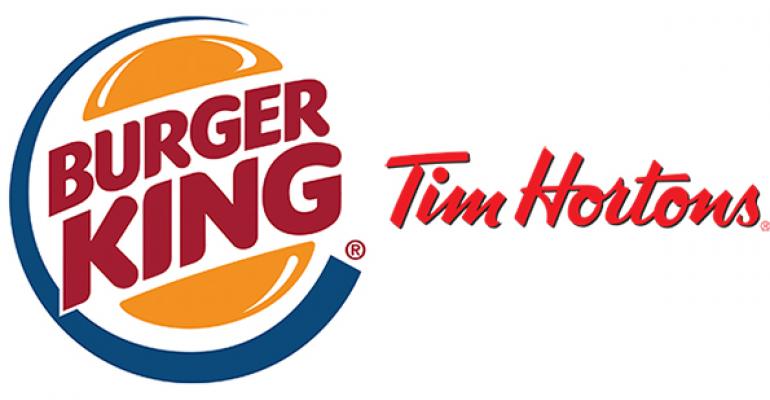Tim Hortons Inc. shareholders approved Tuesday a purchase of the company by Miami-based Burger King Worldwide Inc., in a vote that clears the way for the $11.4 billion deal to be completed by the end of the week.
The new company, an operator of 18,000 units, with $23 billion in systemwide sales, will be named Restaurant Brands International and will trade on the New York Stock Exchange and Toronto Stock Exchange under the ticker symbol “QSR.”
The combined company will be the third-largest restaurant operator in the world, after McDonald’s Corp. and Yum! Brands Inc.
“We are excited to unveil the name of our new global company, which conveys our mission to create the world’s leading global restaurant business through a strong commitment to our franchisees and a consistent focus on serving guests around the world,” Daniel Schwartz, CEO of Burger King, who will be the CEO of Restaurant Brands International, said in a statement.
The two brands will be operated separately, but the new company will be headquartered in Canada — a move that has generated controversy in the U.S. due to speculation that the deal was done purely for tax benefits.
But Burger King saw in Tim Hortons a brand that it could expand globally.
Tim Hortons has 3,665 locations in Canada, but it has less than 900 units in the U.S. and very few overseas. Burger King will likely take significant steps to increase both of those numbers quickly. When Canadian regulators approved the deal last week, they first sought assurances that Burger King would expand in the U.S. and internationally faster than initially projected.
“Restaurant Brands International builds on the rich heritages of our two companies and signifies the exciting opportunities for international expansion this transaction will create,” Tim Hortons CEO Marc Caira said in a statement. “As part of Restaurant Brands International, Tim Hortons will remain an independent, iconic Canadian brand, but with significant opportunities to accelerate our brand development around the world.”
The company said today that the deal is still subject to customary closing conditions, and the Ontario Superior Court of Justice is holding a hearing for a final order to approve the arrangement on Thursday. The deal is then expected to be complete on Friday.
Canada’s Industry Minister, James Moore, approved the deal last week. To win Moore’s approval, Burger King agreed to maintain “significant” employment levels at the combined company’s headquarters in Canada, and said Tim Hortons’ royalty and rent structure would remain level for at least five years. The deal also called for Tim Hortons to be managed as a distinct brand without cobranding in the U.S. or Canada.
Contact Jonathan Maze at [email protected].
Follow him on Twitter: @jonathanmaze




